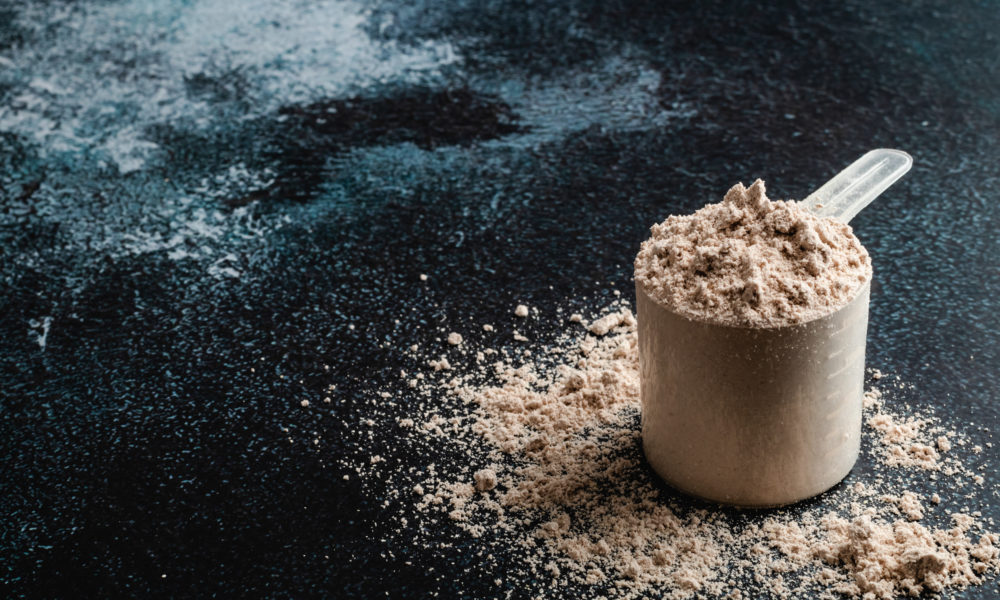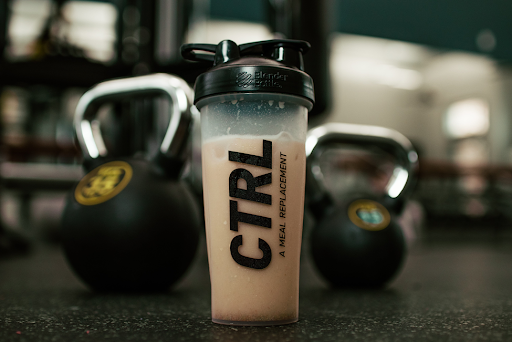- Messages
- 2,405
- Reaction score
- 1,432
- Points
- 113

Over the course of your bodybuilding journey, you have been told consuming the right amount of protein per day is important to build muscles. However, protein is among the most costly of the macros and is the hardest to find naturally. Therefore, most bodybuilders resort to using protein powder to meet their daily protein levels in their diet.
Unknown to most, whey protein takes different forms. Each form of whey has unique benefits. Read on to understand more about whey, its various forms, and the advantages of each type.
WHAT IS WHEY, AND WHERE DOES IT COME FROM?
Before diving into the different types of whey, it is important to understand whey and its source. Whey comes from milk. Milk contains two forms of protein- casein and whey.Whey is differentiated from casein by adding enzymes or acid into the milk. It offers an extraordinarily high-quality protein useful in muscle building. Whey is a complete source of protein as it contains the nine essential amino acids, hence its popularity.
WHAT IS HYDRO WHEY?
Hydrolyzed whey protein, commonly called hydro whey, refers to a pre-digested whey that quickly releases amino acids. Hydro whey boasts the fastest digestion rate among other forms of whey protein. It delivers usable proteins to the body and amino acids to your muscles.Advantages
Some of the advantages of hydro whey include;
- High Source of Protein- hydro whey offers high-quality protein since it has all essential acids. Additionally, it is quickly absorbed compared to other proteins, making it an excellent source of protein.
- Help Curb Cravings- proteins help achieve satiety, which suppresses your cravings. By consuming hydro whey, you feel fuller for longer than the satiety you would achieve feeding on other protein sources.
- Builds Lean Muscle- combining high-intensity training with high-protein foods helps build lean muscle. Whey contains BCAAs that help grow, strengthen and recover muscles.
- Promotes Weight Loss- hydro whey encourages weight loss by curbing appetite and building muscle mass. With reduced appetite, you can reduce your calorie intake, while muscle building helps burn calories.
DISADVANTAGES
Like everything else, hydrolyzed whey proteins also come with a set of disadvantages. After looking at the above benefits, here are some drawbacks of hydro whey;- Expensive- hydrolyzed whey protein undergoes double treatment during manufacturing. The process is rigorous and costly, and thus the cost is transferred to consumers. Hydro whey is more expensive than other whey concentrates.
- Somewhat Bitter Taste- while most concentrated protein versions are sweet and can be sprinkled on food, this isn’t the same with hydrolyzed whey. While taste is relative, it has a somewhat bitter taste compared to other whey options.

WHAT IS WHEY ISOLATE?
Whey isolate is a naturally produced by-product of cheese. It appears as a dry and powdery material that makes different products like meat and candies. Whey isolate contains a high concentration of protein. Excess fats and lactose are removed from the powder during the manufacturing process, yielding high-quality protein.ADVANTAGES
Among the numerous advantages of whey isolate are;- Low Amounts of Fat and Carbs- it is hard to find a source of protein that is low in fat and carbohydrates. Whey isolate is low on both and provides your body with the required nutritional needs without additional calories from hidden macronutrients.
- Boost Tissue Repair and Muscle Mass- as a bodybuilder; your main goal is to achieve lean muscle and repair muscles. Whey isolate is a great supplement to meet these goals alongside your workout plan.
- Helps Avoid Muscle Atrophy – do you suffer from muscular atrophy ? Whey protein isolate is an ideal supplement for you. It is also great for senior citizens who lose muscle mass as they age. Besides preserving muscles for physique benefits, it also helps increase your metabolic rate and burn calories.
- Better Athletic Performance- most athletes opt to consume whey isolate to improve their performance in the field. With hard training and frequent resistance training, the muscle tissue breaks down and gets replaced. Whey isolate helps repair the muscles in a short while hence increasing performance.
DISADVANTAGES
Some drawbacks of whey isolate are;- Allergic Reactions- since whey isolate is a by-product of milk, people allergic to cow milk could get allergic reactions consuming whey isolate.
- Digestive Complications- it is a common side effect. For some, their stomach cannot digest whey isolate properly and thus experience challenges like diarrhea, bloating, or stomach cramps.

HYDROLYZED WHEY VS. ISOLATE
After looking at each of these two types of protein individually, you understand them better. Hydrolyzed whey and whey isolate are the most preferred protein supplements among bodybuilders. However, most people are confused about which they should settle for between the two. Here are some key differences and similarities:MANUFACTURING PROCESS
Whey Isolate is manufactured through a process where the whey concentrate protein is micro-filtered. During the filtration process, anything that is not protein is filtered out. Thus, the result is pure protein without any fat or lactose.On the other hand, hydrolyzed whey is manufactured in a different value addition process. The whey protein is exposed to extreme heat, enzymes, or acid in order to break down the strong bonds holding together amino acids.
It is a pre-digestion process where amino acids are separated. The manufacturing process enhances bioavailability and makes it easy for the body to digest. It also helps increase protein synthesis.
DIGESTION SPEED AND BIOAVAILABILITY
Hydrolyzed whey protein digests faster compared to whey isolate. However, whey is generally manufactured to be a fast-absorbing protein. Between half an hour and an hour after consumption, hydrolyzed whey protein will spike amino acids in the blood.Additionally, hydrolyzed whey protein has a high bioavailability. Bioavailability refers to the percentage of protein that the body digests after consumption. Thus, it shows that hydro whey will be well used by the body after consumption. Whey isolate has a slightly lower bioavailability rate.
THE PRESENCE OF FATS AND CARBS
During the manufacturing process of whey isolate, the unwanted traces of fat and carbs are removed. Lactose is also removed. Hydro whey also removes all the fats and lectors, making the two a great option if you are lactose intolerant.However, unlike his hydro whey, the whey isolate filtration process, when non-ionized, can maintain natural micro fractions found in milk. These micro fractions offer different benefits like better digestion, improved mood, etc.
WHAT ABOUT CASEIN PROTEIN?
Let’s start with what exactly casein protein is, casein is a protein in milk that adds the white color to milk. Casein protein makes 80% of the cow’s milk, which is found in milk products like cheese, yogurt, and other dietary supplements. It’s a form of protein that provides all amino acids to the body when consumed. However, it is digested slowly compared to other protein sources, helping you feel fuller for longer.ADVANTAGES
Some of the benefits you get from consuming casein protein are;- Slow to digest- casein protein is referred to as time-release due to its low absorption rate. Slow digestion means it will feed your cells over a long time, enabling you to feel fuller for longer.
- Highly Effective to Boost Muscle Growth- bodybuilders use casein protein to help build their muscles. As an animal protein, casein has the necessary amino acids to boost muscle growth. It also enhances long-term muscle mass.
- Immune benefits- besides muscle-building advantages, casein protein also offers immune benefits, ensuring you remain strong to keep training. It is also high in other nutrients like calcium which helps bold, strong bones and muscles.
DISADVANTAGES
Despite having all-round advantages, there are some downsides to casein protein like;- Less Leucine Concentration Compared to Whey- leucine is among the BCAAs (Branched Chain Amino Acids), which compromise leucine, valine, and isoleucine. Although all the amino acids help build muscle, leucine triggers muscle building. So, since casein protein has less leucine, it is not as effective as whey in building muscle.
- The Dosage Recommendations- to get the best results from your bodybuilding workout, it is recommended to consume between 20 and 40 grams of high-quality protein. While it is advantageous, the timing of consumption becomes less significant over time.
THE ANABOLIC WINDOW: DOES IT MATTER?

The best time to take your protein has always been debated by many. You can take your protein after a workout or in the morning. However, most people believe that drinking your protein after working out is the best time since the muscles are drained and need to be powered back up.
The 30 minute-period after working out is referred to as the anabolic window, a window whether your muscles are a sponge for protein. The reasoning behind this notion is that if you take protein after this window, the body will not use it as effectively as it would if you had taken it before.
Alternatively, you can consume it first thing in the morning. After a heavy day of training, your body will be recovering from training when you wake up. If the body lacks enough proteins to recover, it will not build muscles. So taking hydro whey after waking up is also recommended.
However, research shows that the anabolic window should not matter since there is no difference in the muscles whether you consume your protein before or after your workout. Provided you consume protein in the recommended amount, it shouldn’t matter the consumption period.

